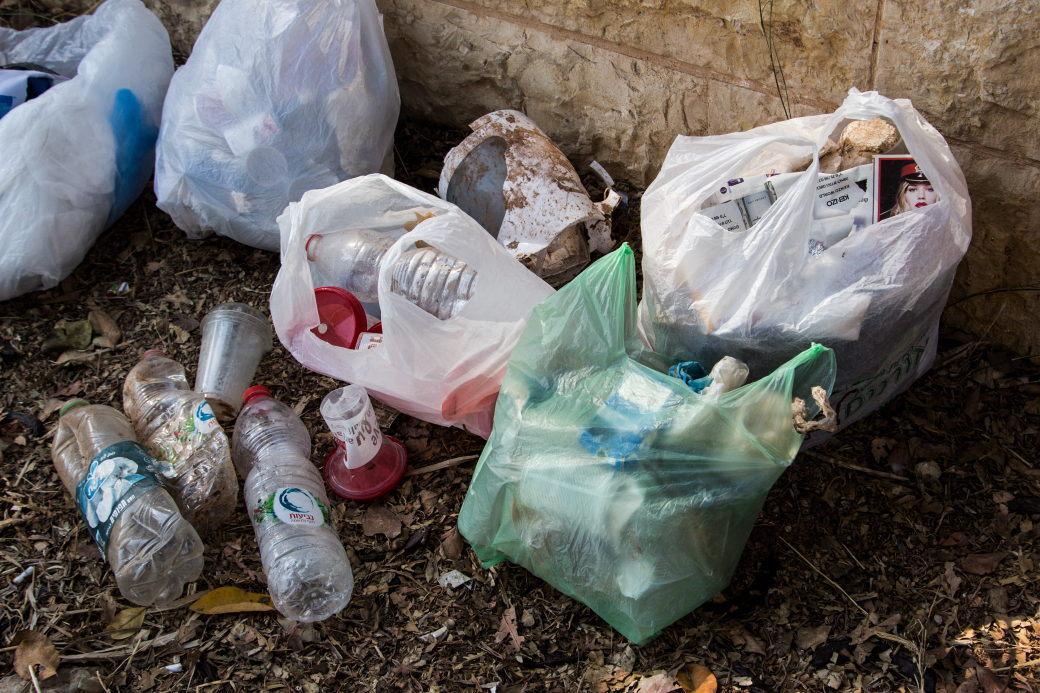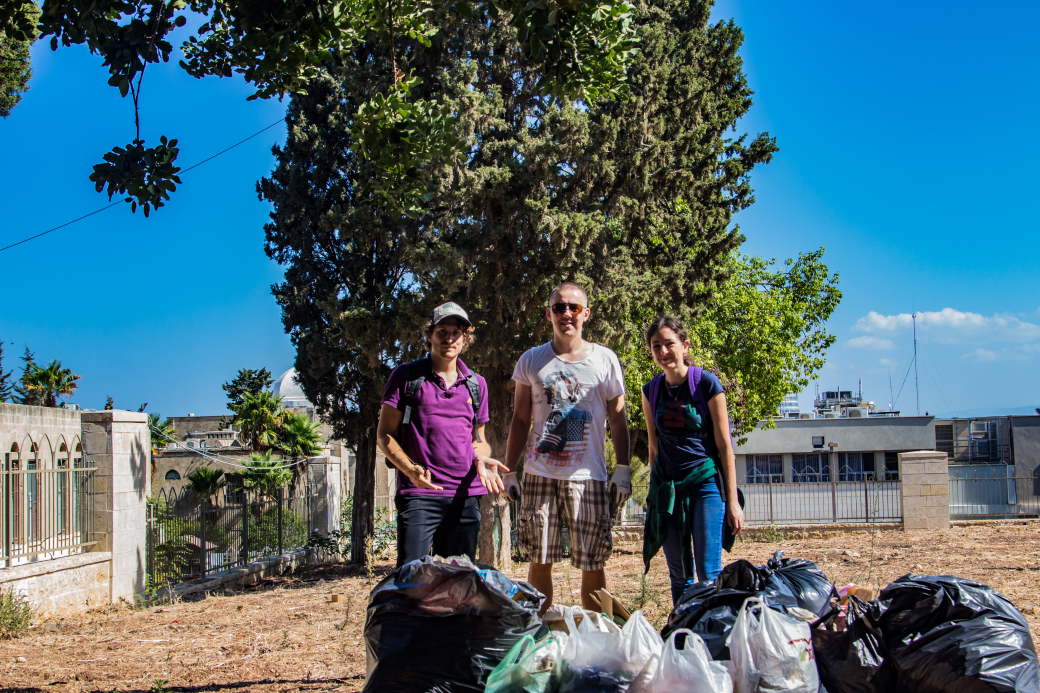Hey friends! As I promised that I would do, I am going to answer the questions that I posed to every person who reads this. Well, I’ll answer one question at a time, so as not to overload those that are reading my posts. Sounds fair?
- What does it mean to live waste-free?

Living waste-free is an ambitious undertaking. It’s not impossible, but in many ways there are difficulties involved with living completely free of waste. To live waste-free, one most eliminate all forms of possible waste in their lives. For example, buying products without excessive, reusable packaging in order to throw out as little as possible into the garbage can.
It isn’t easy to accomplish this feat, especially in a world where excessive packaging is everywhere. Even as a person who tries to avoid being wasteful most of the time, I still fall victim to the unsustainable packaging and items that are the default in many eating establishments. Many places in the world, especially in the US and Israel, there’s a high frequency of “to-go” or “takeaway” options, and lots of one-time use packaging options are very normal.
So what is the issue? Can’t we just throw these things away right afterwards and forget about it? Well, sure we can just toss our trash in a bin and let those in charge take care of it. There are a few issues with this mentality though.
The first issue is that in terms of sustainability, these products don’t just “disappear”. Depending on the type of plastic, it can take decades or centuries for plastic to actually biodegrade. Some plastic technically never biodegrades, so if it ends up in our landfill (or worse, our parks and oceans), it’s going to be sticking around for awhile. This can lead to poisoning of ground, water and inevitably every living thing that is nearby over time.
The second issue, which I briefly touched upon in the previous paragraph, is that sometimes the trash DOESN’T make it into the bin, and those responsible for cleaning it up (whether it’s a regular citizen or a municipality worker) might never get around to cleaning the mess up. Then our parks, beaches, and natural areas become ruined by the trash that nobody will take responsibility for.
If we must use resources like plastic, we should take care to ensure that what we are using will be properly disposed of and will be somehow recycled. One way to ensure proper recycling is to buy things with containers that can be reused multiple times.
I make attempts not only to recycle and properly toss what I no longer need, but also to ensure that anything that I do buy which has packaging can be used again. One time use packaging is any product that has a container (typically plastic but could be cardboard, too) that is meant to be thrown away right after it is opened.
There are certainly a lot of reasons we use packaging like this. One particularly noteworthy one is health. If a package is not sealed properly, certain bacteria can get in and make the foods bad. However, certainly that is not true in every situation. Why is it important to package 3-4 small vegetables in tiny plastic bags when you can buy them fresh in the market, or even a small bag of trail mix when you could buy all the ingredients in bulk and make your own?
I think that a lot of it comes down to our changing world lifestyles. We get so busy in our day to day lives that our willingness to partake in ecological alternatives has dwindled. It makes more sense when we are in a rush to work or pressed for time getting to events that we buy the convenient snacks or products that have packaging to prevent spoiling, messes, or the need to maintain our own products.
Here are a few tips that I’ve thought of that can help to lessen our amount of waste in the world, at least on a personal level.
- Buy food items and products in bulk, preferably in reusable containers.
- When you consider that you could be working a full week and you know that you’ll have times to need food or a snack here and there, take the time the day before to prepare your meal or your snacks so that you don’t have to buy a small bag of chips from the vending machine. It will hopefully be more ecological, and you have full control over what you are consuming.
- Bring your own containers for shopping and consider the packaging that you buy.
- At some point, there probably is going to be something that you need to buy that you cannot avoid getting in a package or container. At least if you are going to do this, take care to ensure that you’re getting the container that you can reuse multiple times down the road rather than the plastic wrap that you are going to rip off your item and then never think about again. Even if you are buying something that has single-use packaging to it, try to make it something that is easily compost-able or recyclable (cardboard, paper, etc).
- Properly dispose of your trash and correctly recycle what you are able to… and encourage others to do so as well!
- Having trash is going to be unavoidable in many peoples’ lives. Remember just to consider that not everything you buy has to be trash right away. A single use coffee pod can have multiple uses after the intended one. Products that come in containers such as tin cans, glass, and some plastic can be used for storing future food items like grains, spices, leftovers, or even non-food items. A large coffee can with a lid can be storage for things like spare change, nails/screws, small electronics.
Next time I’ll discuss this question, and you can think about it in the meantime:
- Who do we impact by being more conscious of the waste we create?
What ideas do you have for how to waste less and live a more sustainable lifestyle? Comment and share if you agree or would like to discuss more!

Take care and keep trying to live a more waste-free life when possible!

















